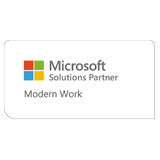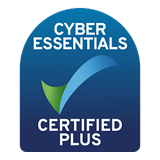5 things you need to consider before moving to the Cloud

It’s almost impossible to have a discussion about networking technology today without talking about “the cloud.” So where does your business stand when it comes to implementing cloud technology? If you’ve been thinking about moving to the cloud, here are five things to consider before you make your move:
1. How Will You Use the Cloud?
There are many ways to deploy cloud technology in your business. As a business owner, it’s important to decide why you want to move to the cloud in the first place and what you expect the potential gains will be. Here are some typical cloud technologies and how they can benefit your business:
Hosted Email
If you host your website with a third-party provider, chances are you’re already making use of hosted email, instead of using your own dedicated, in-house email server. If you are using a dedicated email server, you can move your email to the cloud and leave the maintenance and hardware issues to the experts.
Disaster Recovery
These days, backing up your data is absolutely critical to the health and well-being of your business. Cloud technology can provide extra protection by storing your vital data in the cloud, outside of your office building. Your data is protected from fires, natural disasters, and theft that could affect your physical offices. .
Company Servers
If you’re considering a move to the cloud, chances are you already have at least one server that runs a variety of applications, stores your data and administers your network. As your business grows, your network will grow with it, making additional hardware purchases and server maintenance inevitable. Cloud-based technology can take the place of on-site servers in many cases, allowing you to handle all your networking needs from the cloud.
Software Applications
The days of having software on a single computer for each employee are going the way of the dinosaur. These days many applications can be deployed from the cloud for better control over software licensing and broader access for everyone who needs it. Microsoft 365, for example, allows you and your employees to run Microsoft Office applications like Word and Excel from anywhere you have access to the internet. Many providers also offer cloud-based access to accounting programs, CRM software and even custom applications.
2. Understand the Advantages of the Cloud
Flexibility
With cloud technology in place, it’s possible to work from virtually anywhere. Employees can access documents while they’re out on the road, at home or from a coffee shop or hotel room. This flexibility often translates to increased productivity and better management of resources.
Sharing and Collaboration
Cloud technology has provided unprecedented opportunities for sharing and collaboration that were unheard of even five years ago. Today instead of sending an attachment via email, it’s now possible to share documents through cloud services and even edit and annotate them from anywhere.
3. What deployment model should you use?
Each of the cloud service providers offers three different deployment models: Infrastructure as a Service (IaaS), Platform as a Service (PaaS), and Software as a Service (SaaS). Each presents various levels of control, flexibility, and management. Where IaaS brings a high level of flexibility and cloud management control, it’s more resource intensive. PaaS requires fewer IT resources and offers a faster speed to market, but also has restrictions on technical functionality and compute resources. Although SaaS frees up IT resources and offers rapid deployment, it gives you minimal control of your applications and little to no flexibility.
Determining which deployment model to use will be much easier if you’ve set your organizational goals. Understanding the differences can help you decide which model aligns best with your needs. Setting your priorities will help change the question from “which deployment model is best?” to “which deployment model best supports our goals?” (which will also make it easier to answer).
4. Consider Security
Safeguarding sensitive data becomes even more critical when moving files to the cloud. You will need to establish new policies to allow the safe sharing of data, while simultaneously protecting that data.
Be sure to ask questions about security before moving your services to any cloud provider. This is particularly important if you work in an industry that demands confidentiality of user information such as the medical, legal or accounting fields. Be sure to go over any cloud provider’s service agreement carefully and make special note of their security policies.
Some questions to ask potential cloud providers include:
- Where is their data centre located?
- Who can access the data centre and how is access provided?
- What security measures are in place to prevent unauthorized access or hacker attacks?
- Will the provider notify you if a breach in security occurs?
- Has the provider undergone a recent security audit and will they share the audit results with you?
5. Who Will Manage Your Cloud Services?
While it is possible for small and medium-sized business to manage their cloud deployment on their own, rapidly changing technology can make that deployment confusing and time-consuming.
If you’re moving much of your company’s infrastructure to the cloud, consider working with an IT provider that can help make your transition as smooth as possible. An experienced IT provider, who is well-versed in cloud technology, can also provide ongoing support to keep things working right and help you leverage your options to take your business further.
While there’s no doubt that cloud technology is here to stay, there are many routes to take when deciding how to best leverage the cloud for your business. Computer Geeks are Microsoft Silver Certified as a Small or Mid-market Cloud Solutions Provider, which means we are qualified to supply hosted services through Microsoft. We are authorised and certified with a variety of other Cloud Services Providers. We will make your journey to the cloud effortless and pain-free. Get in touch with us today on 0117 325 0370 and see how our Cloud based solutions can really enable your business to be nimble, efficient and cost-effective.





